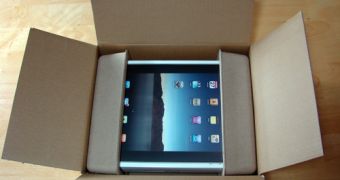Apple will no longer replace faulty iPads with refurbished units in Korea, following a decision by the Fair Trade Commission that forced the Cupertino giant to comply with local regulations.
“Apple confirmed that the renewed policy in Korea is the world’s best level compared to in other countries,” said Kim Chung-ki, a FTC official, at a news conference, according to the Korea Herald.
In other countries, Apple is still allowed to decide on its own how to compensate customers whose devices exhibit malfunctions that haven’t been caused by the user. In most cases, refurbished products are offered in return.
Refurbished products are pre-owned items that undergo a rigurous refurbishment process before going back on sale.
The Cupertino, California-based technology giant clearly states on its web site that:
“Apple Certified Refurbished Products are pre-owned Apple products that undergo Apple's stringent refurbishment process prior to being offered for sale. While only some units are returned due to technical issues, all units undergo Apple's stringent quality refurbishment process.”
“They are in 100% working condition, and are then sold as refurbished product. As these refurbished products have been unpacked and manipulated, they might however exhibit some minor cosmetic imperfection, such as scratches, marks or discolorations.”
All Apple refurbs are fully tested (including full burn-in testing) and put through a thorough cleaning process and inspection, and ultimately repackaged with a new box, manuals, cables etc.
Apple’s decision to comply with the rules and regulations in Korea came after a revised bill from April 1 took effect, obliging companies to improve their after-sales policies.
“As other major firms have already met the requirements here, Apple as a global player made a decision after discussions with the FTC,” Kim added.
In Korea, companies that will fail to comply with the new standards will be fined up to 100 million won (roughly $90,000, or 70,000 EUR).

 14 DAY TRIAL //
14 DAY TRIAL //